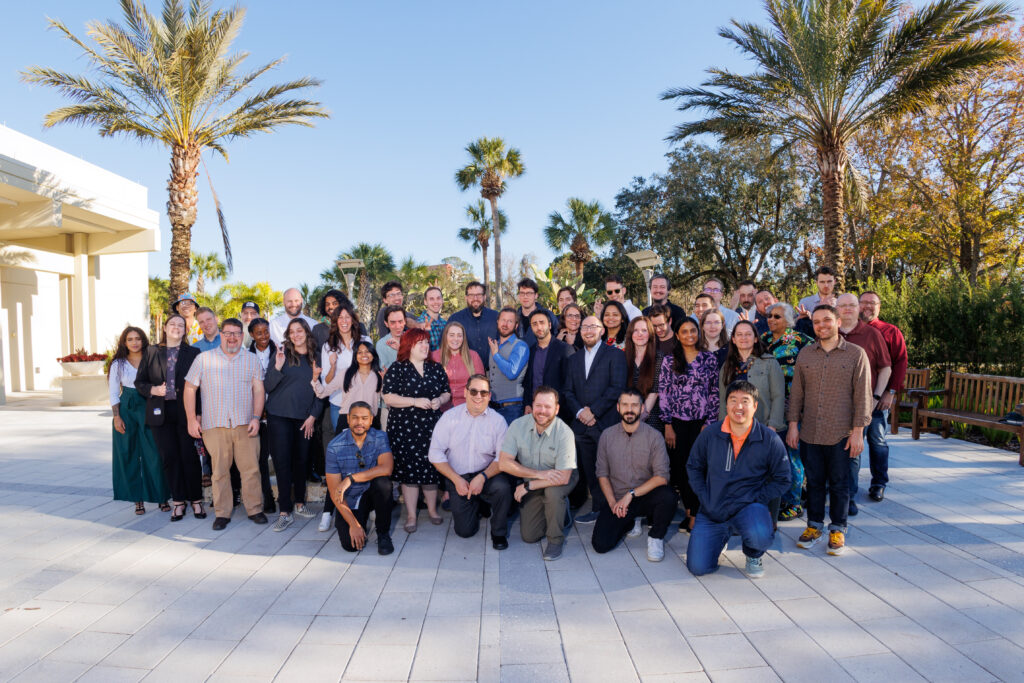If you were trying to get a train across the country, would you want to know that a bridge on the train’s route needs to be repaired a month before starting the trip or when the train is starting to cross the bridge?

Getting the call
“Why didn’t anyone tell me sooner?” you think as you put the phone down. “The COO just called me and told me our newest truck model is rolling off the assembly line but the new features for the online dashboard aren’t ready. We have been touting these upgrades as the best way for our customers to collect data on their trucks and manage their fleet. We spent months working through supply chain and production issues so that our vehicles beat our competitors to market. Now we are in damage control because no one told me until today.” This misalignment highlights flaws in our product development strategy.
Let’s ask our engineer Kit what happened:
“The deadline for this feature was looming and I didn’t see how I was going to get it done in time. I really don’t want to disappoint the Project Manager again. They have really been hammering us about getting our estimates right. I started skipping my breaks and I was eating lunch at my desk. Then I put in a few extra hours in every evening. A few days have gone by and now it is midnight the night before the feature is due and I am exhausted. I know finishing on time is an impossible task. I resign myself to my fate and turn in for the night. At the morning standup I am the last person to give an update. When the Project Manager finally calls my name, because I’m accountable I take responsibility for failing to get the feature done on time.”
Nobody likes the feeling of being surprised at the last moment as the momentum of a product launch gets derailed. The software engineers are disappointed that they didn’t finish the feature when they said they would. Management is frustrated with being the bearer of bad news as it travels across the organization all the way up to the CEO. At every level the question asked is “Why didn’t anyone tell me sooner?”
What you are feeling is caused by a lack of proactive accountability.
Why didn’t Kit say something as soon as they recognized getting the feature done by the deadline was in jeopardy? Because they didn’t want to disappoint anyone. They think that what they were accountable to was to get the feature done at all costs and if they admit they made a mistake it will reflect negatively on them in the future. The result is a team member headed for burnout, a demoralizing surprise because the software is not ready, and unhappy customers.
Proactive accountability: a new approach
A common definition of accountability is “being responsible for your actions”. We tend to think of accountability as taking responsibility for our past actions. We screwed up and we feel terrible about it and now we have to tell our boss or manager and promise to do better next time. Wouldn’t it be better for us to change the definition of accountability in our organization to “being responsible for your actions by working together and communicating proactively to meet goals and expectations.” How do we coach our teams so that this definition of accountability moves from embarrassing disappointment to proactive collaboration?
Mistakes aren’t a necessary evil. They aren’t evil at all. They are an inevitable consequence of doing something new.
Creativity, Inc by Ed Catmull, co-founder of Pixar
Proactive accountability requires culture of safety
Your team members care about their work and want to be successful. How can we coach them to recognize that communicating about potential problems before failure happens is being more responsible and accountable? The team member must feel safe to make mistakes or they may try to cover up problems by working harder instead of communicating with the team. When the team member shows the courage to surface a problem early, it should be praised and encouraged. It is a gift when tomorrow’s problem becomes today’s opportunity. The team can work together to look at the problem today and work toward a solution instead of everyone facing the dreaded scenario of a last minute surprise.
Our approach to coach players on accountability is first we model this behavior to the team. That means being honest when we make a mistake even when we feel uncomfortable. There is a perception of consultants that you have to be perfect and know all the answers. The reality is that sometimes we underestimate a task or miss a requirement or choose the wrong solution. What matters the most is how we react when this happens.
As soon as we realize there is a problem we raise it with the team so that we can stop focusing on what we can’t do, but instead move forward to figure out what we can do.
Another method we use to coach players is to watch for the signs that the team member is waiting too long to talk to the team. At the daily standup we ask questions when a team member’s update seems vague. If the status update is “the task is going well”, we dig deeper and try to get more specifics, such as “This is estimated to take 3 days and you have worked on it for 2 days, are you two thirds of the way finished?” We will take some time outside of standup to check on the progress and break the tasks down to make sure we are on track. It is a common problem that the feature is too big and we should try to break it down further or the team member is trying to work outside the scope of the problem.
In the beginning these methods will feel uncomfortable because many people in our industry have not been in a safe environment to admit mistakes. There is a culture of fear that heavily influences our decision making. It will always be a little uncomfortable but this improves through coaching in a safe environment with a focus on knowing when problems and mistakes happen.
Accountability in action
While working on a project, I discovered we had published some proprietary information publicly. Mistakes happen, but this type of error can make you feel embarrassed about coming forward to inform a client. How will the team or management react? What will the client do? It was a very scary situation, but not because I had to tell our team, our leadership, and our client. Because of the culture of safety and our core value of accountability I knew how to put that fear aside and how to respond. Our team began to take steps to mitigate the leak and notified our leadership, who very quickly notified the client. We spent several days documenting what went wrong and what we had done to fix the problem both immediately and in the future. Adhering to information architecture principles helped us to systematically address the issue and prevent future occurrences. Our client was not happy about the incident and the exposure turned out to be minimal, but they were impressed by our honesty, transparency, and quick response.
We can help
How does Integral know that these practices work? Because these are the practices we execute every day in our organization. “Accountability over Comfort” is one of our core values that we are introduced to on our first day at Integral. We have seen the benefits of this value for ourselves and our clients and we want to help you coach your employees to be proactively accountable.
To further support your team in achieving proactive accountability and strategic success, consider signing up for a free Product Success Lab. Work with our experienced consultants to jumpstart your path to product success with tailored strategies and actionable next steps.

